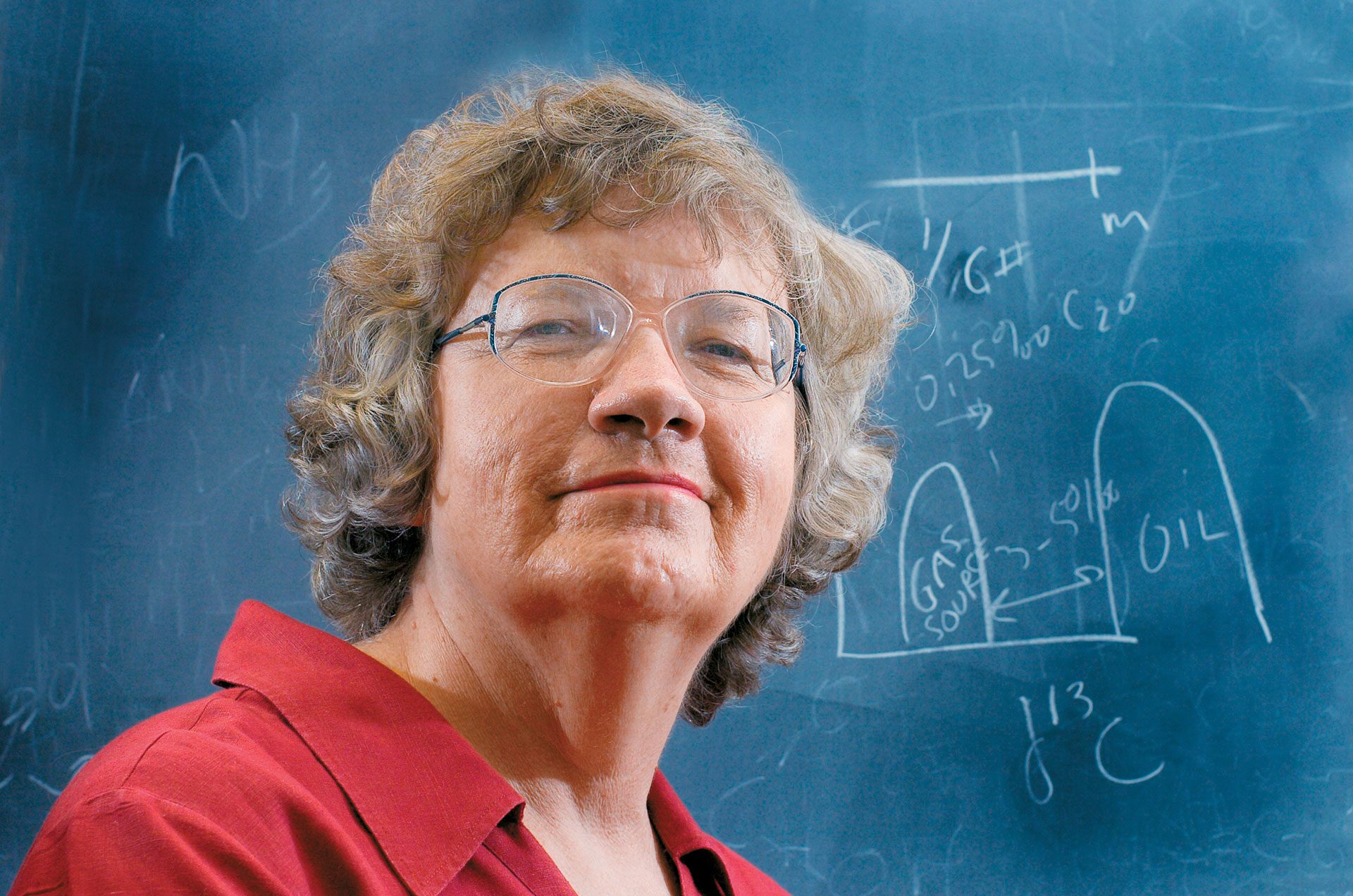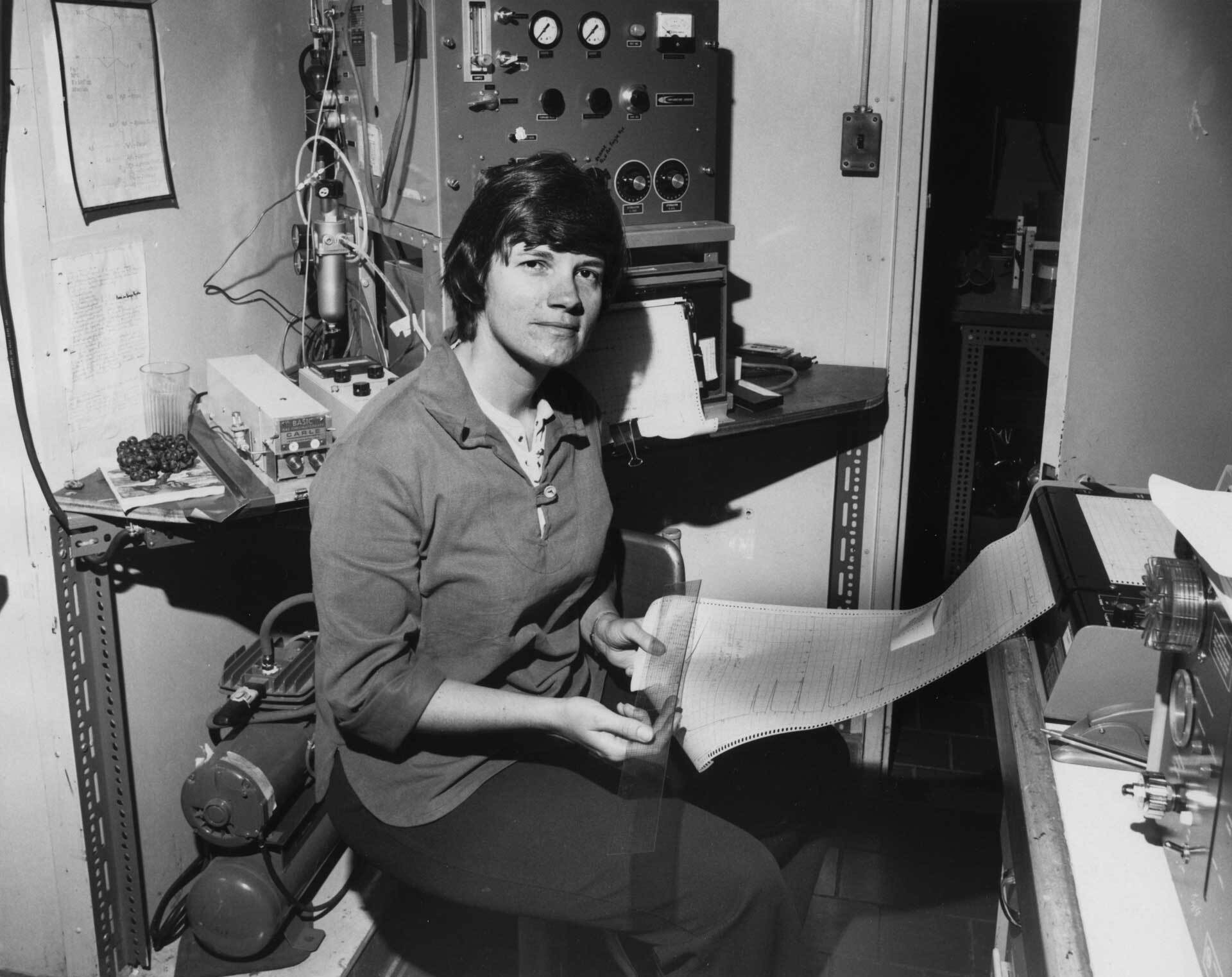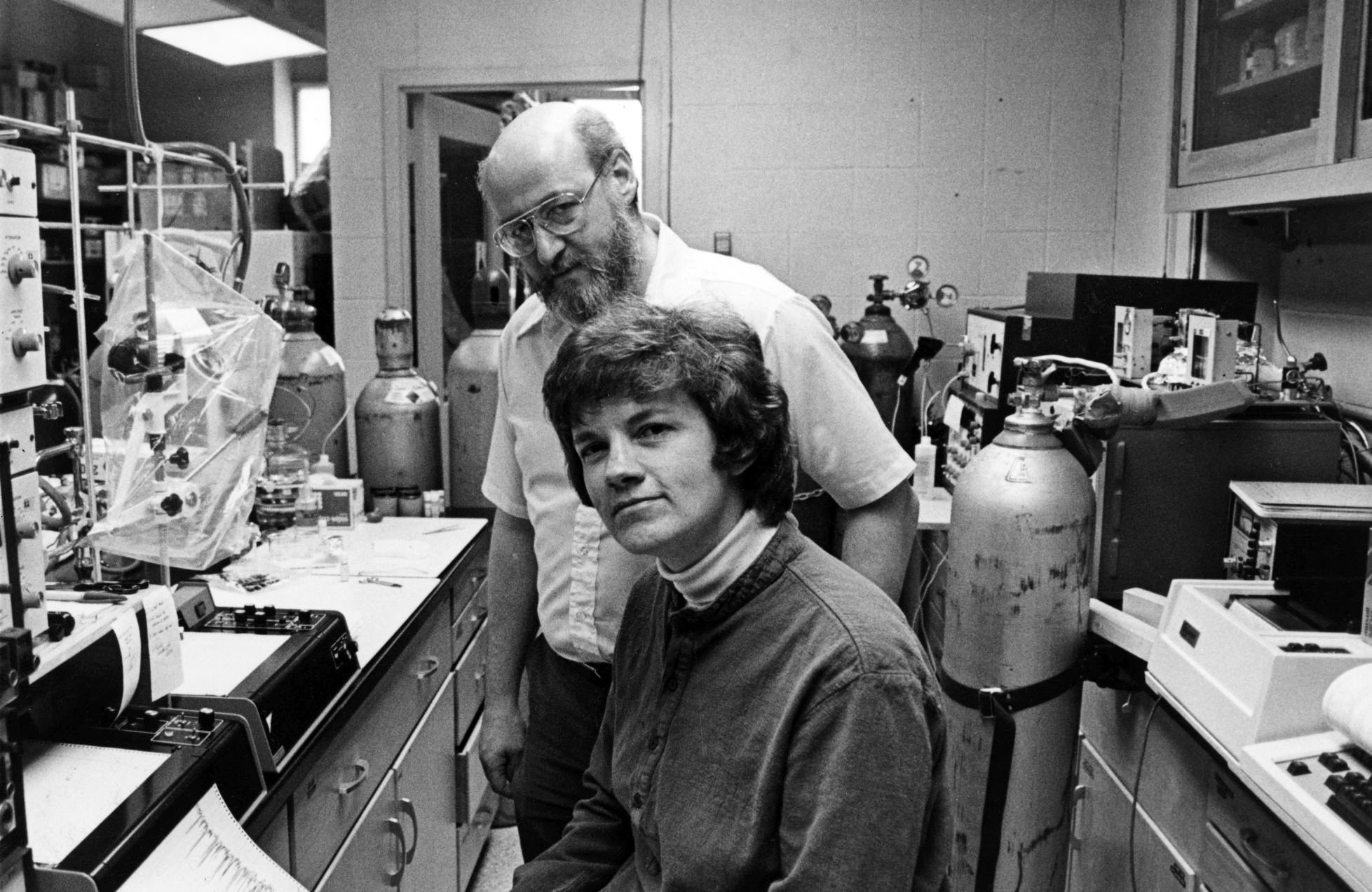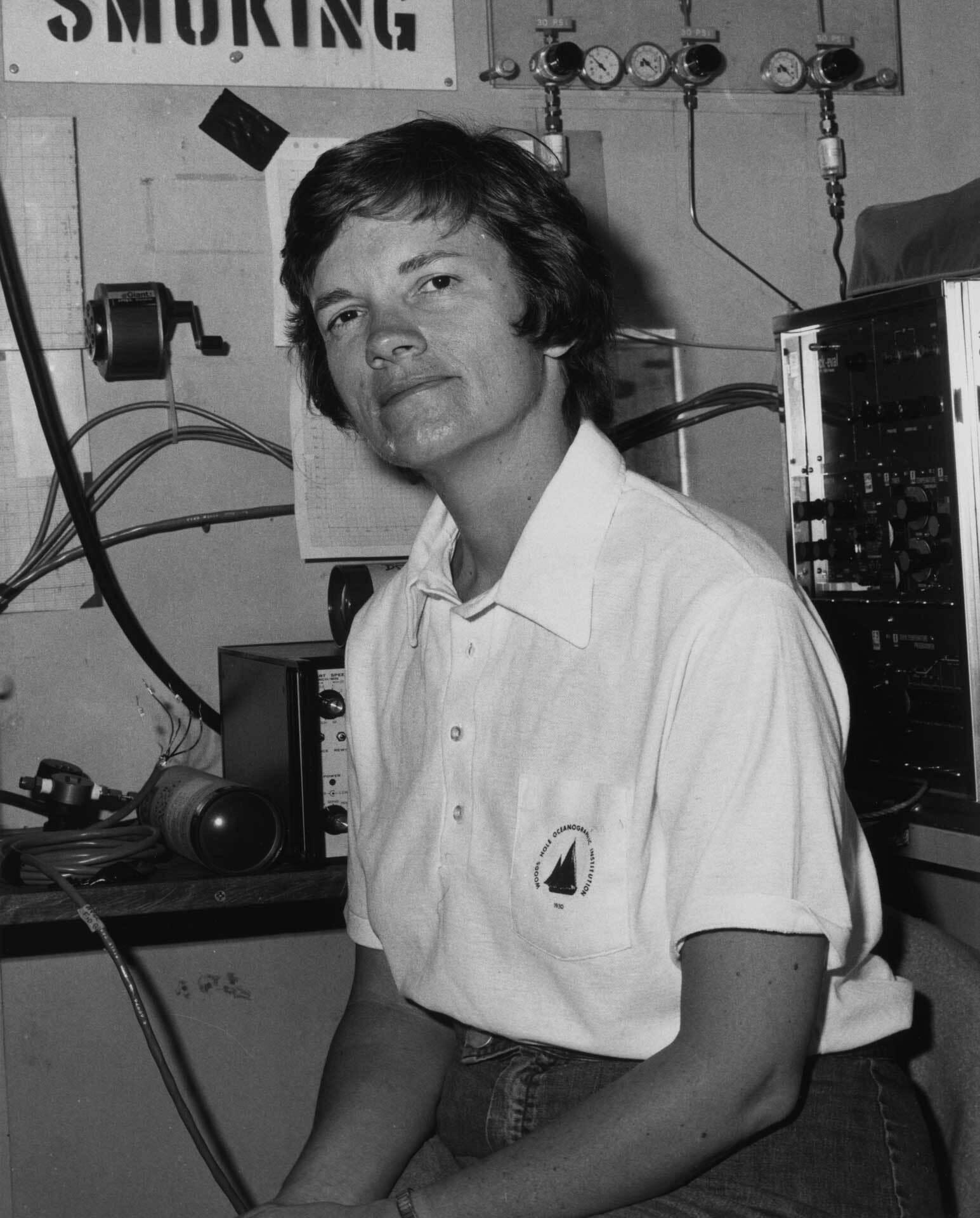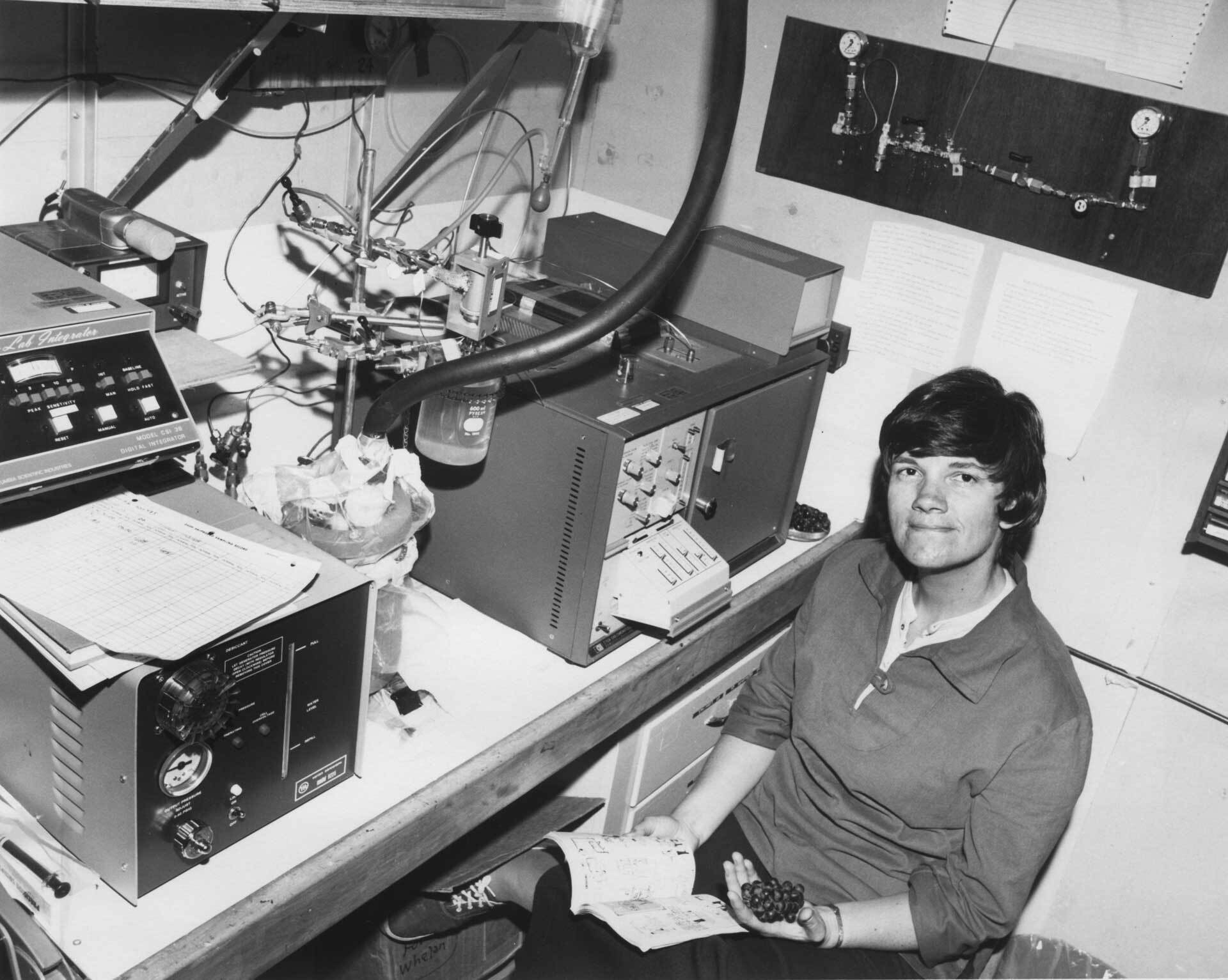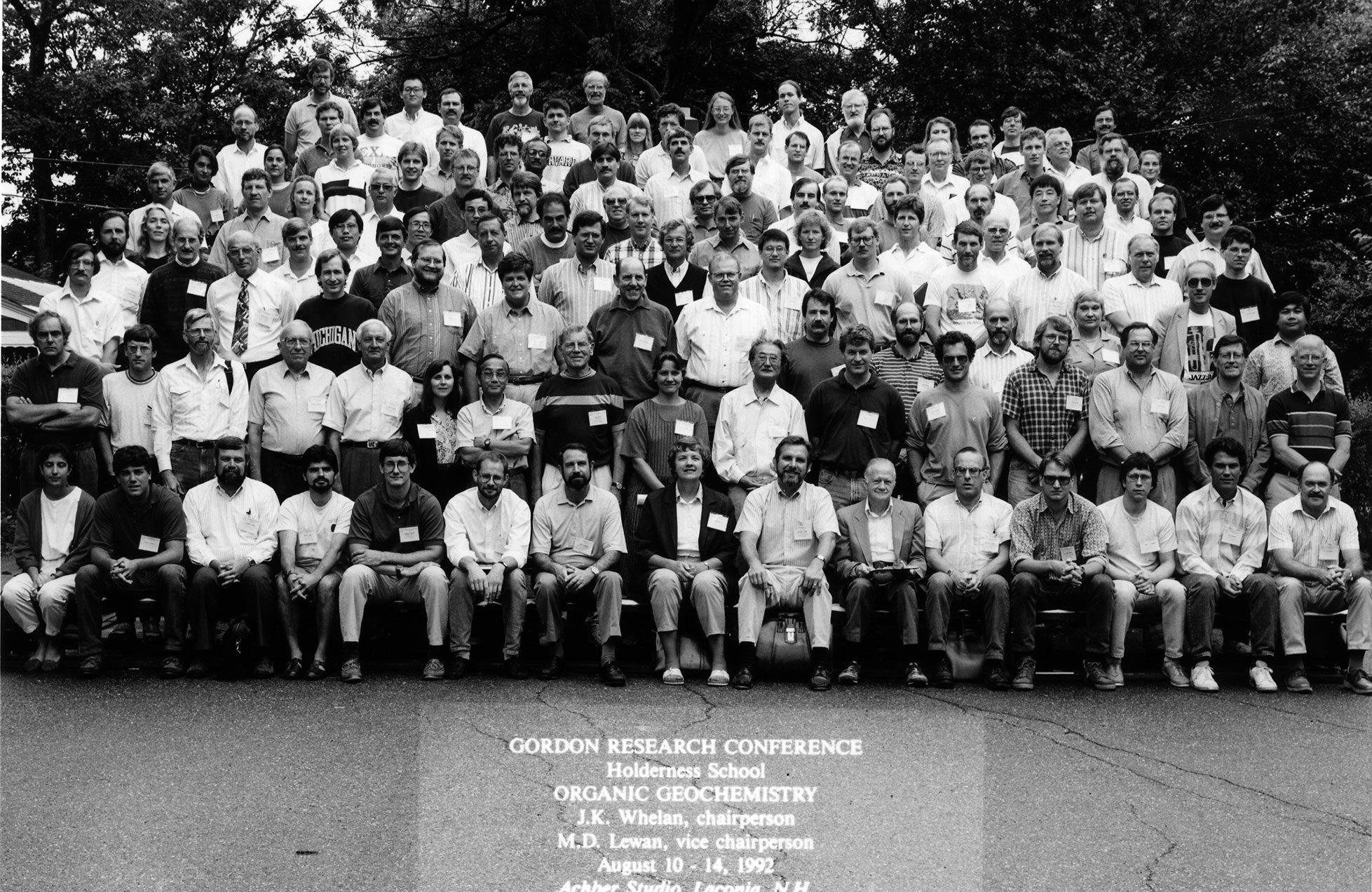Jean King Whelan, Ph.D.
Organic Geochemist, WHOI Oceanographer Emeritus
At WHOI, “I was amongst the best people in the world doing oceanography.”
“No matter who’s around you, you learn stuff from them.”
Whelan returned to WHOI in the early 1970s as a guest investigator. In 1975 she was one of the first women to join the technical staff in the Department of Marine Chemistry and Geochemistry. She entered the field of organic chemistry at a time when instrumentation was advancing rapidly, especially at WHOI.
Whelan worked with WHOI senior scientist John Hunt, a founder of the organic geochemistry field. She ran his lab and conducted her own research which focused on gases, primarily methane and light hydrocarbons in ocean sediments and water. Her work developing a technique to measure heavy hydrocarbons in gases was so successful that she was asked to bring her system to the drilling vessel Glomar Challenger so that it could be used at sea. In 1983, Whelan became WHOI’s first woman senior research specialist.
Hunt heard about an instrument that French scientists used to study oil generation and he wanted one for his lab. Whelan designed and built one, based on what he described. It heated sediment until hydrocarbons were generated, which could be separated and measured with a gas chromatograph. After building it, Whelan and Hunt learned that the French instrument was just a rumor. Her instrument was the first of its kind.
At WHOI, Whelan focused on pyrolysis analysis and methane and light hydrocarbons in ocean sediments and waters. She also focused on oil and gas migration processes. Whelan was a leader in the discovery and study of gas reservoirs beneath the sea floor and worked with WHOI engineers to develop instruments to monitor them continuously. Later in her career, Whelan spent time educating the public and funding agencies about the ramifications of a seeping gas system for the earth and atmosphere.
Whelan received millions of dollars in grants during her time at WHOI. She was known for her positive attitude, infectious enthusiasm, and was a mentor to many young scientists.
Whelan was an early advocate for inclusion at WHOI and was committed to leadership and mentorship within the scientific and technical staff. She founded the Robert Whelan Award in memory of her husband. This honor is open to all full-time members of the department, with an emphasis on groups that are commonly neglected by other institutional grants. In 1992, she was the first woman to chair the Organic Geochemistry Gordon Research Conference and, in 1998, she won WHOI’s Linda Morse-Porteus Award.
Jascin N. L Finger August 2023
Edited by Hannah Piecuch November 2023

